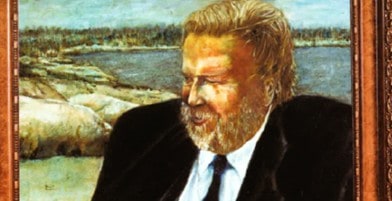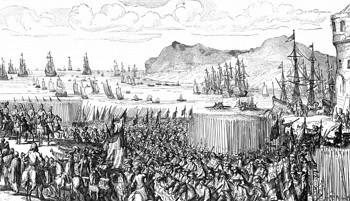This year is the centenary of George Grant’s birth, and thirty years since his passing. George Parkin Grant (1918-1988), is Canada’s leading traditionalist philosopher. The main expression of George Grant’s thought occurs in his four major books: Lament for a Nation: The Defeat of Canadian Nationalism (1965), Technology and Empire: Perspectives on North America (1969), English-Speaking Justice (1974/1985), and Technology and Justice (1986). Philosophy in the Mass Age (1959), and Time as History (1969), are his two major earlier works. Grant is a complex philosophical […]
Kategoria: Filozofia polityczna
Wegierski: Commemorating the centenary of George Grant’s birth, and thirty years since his passing
2018 marks the centenary of George Grant’s birth, and thirty years since his passing. George Parkin Grant is still probably the most prominent Canadian traditionalist philosopher. One could sharply ask today — is there still really a place for Grantian-type traditionalism in current-day Canada? First of all, it should be remembered that Grant’s profound and subtle definition of conservatism is very remote from what is its more common definition today, as mostly a tax- and budget-cutting ideology. Despite his greatly impassioned writing, Grant did not […]
Wegierski: The professor and the philosopher — Thomas Hurka and George Grant
In commemoration of 100 years since the birth of George Grant; 30 years since the passing of George Grant. This essay arose out of a piece defending George Parkin Grant – originally written in 1992 — that the Toronto Globe and Mail newspaper had refused to publish. In the last three or so decades, there seems to have emerged a tendency, in the Canadian establishment media, to criticize George Parkin Grant (1918-1988), one of Canada’s pre-eminent thinkers (on those rare instances when he is noticed at […]
Wegierski: On the 330th Anniversary of the Glorious Revolution. The Historical Significance of the English Civil War
The persons who are likely to read konserwatyzm.pl are hopefully very atypical of the prevailing, contemporary North American ethos: profoundly concerned with history and culture, and able to read articles requiring a large degree of cerebral effort and long attention-span. This essay is written with the audacious thesis that the now very distant-seeming English Civil War of 1642-1648, and its real aftermath, the so-called Glorious Revolution of 1688, constitute one of the critical defining experiences of the new cultural identity that can be termed Anglo-Americanism, […]
Wegierski: Whither Québec? Past, Present, and Future (II)
In the case of a long-serving Liberal Prime Minister like Mackenzie King, and a Liberal Party that could be called “centre-traditionalist” or “traditionalist-centrist” – the consequences of Liberal government were more-or-less salubrious for most Canadians, and did not imply the revolutionary transformations of “regime-change”. However, from 1963 forward, the federal Liberal Party came under the spell of revolutionary-transformative ideas. Indeed, some have argued that Trudeau largely “hijacked” a “centre-traditionalist” Liberal Party as a vehicle for his agenda of radical, total transformation. In the years 1968 […]
Wielomski: Podmioty uprawnione do prowadzenia wojen w teorii Carla Schmitta
Kontekst historyczny powstania teorii „jus publicum europaeum” „Jestem ostatnim świadomym reprezentantem jus publicum europaeum, jego ostatnim wykładowcą i badaczem” – pisał sam o sobie Carl Schmitt w 1950 roku[1]. Koncepcję tegoż jus publicum europaeum (prawo publiczne europejskie) niemiecki prawnik przedstawił w wielkiej rozprawie Nomos ziemi w prawie narodów Jus Publicum Europeum (Der Nomos der Erde im Völkerrecht des Jus Publicum Europeum, 1950). Prace nad tym dziełem Carl Schmitt rozpoczął już w 1942 roku. Rozprawa pierwotnie była pisana jako traktat uzasadniający jego tezę o zmierzchu […]
Wegierski: Canada – a country without a Right?
On October 15, 2003, the prospects of the broader Right in Canada brightened somewhat for the first time in decades. Overcoming years of negativity, the Canadian Alliance (which had emerged from the Reform Party of Canada in 1998-2000), and the federal Progressive Conservative party agreed to unite themselves (pending the approval of their memberships by December 12, 2003), as the Conservative Party of Canada (the former name of the Progressive Conservatives from several decades ago). Under the leadership of Stephen Harper, this Conservative Party was […]
Bartyzel: Demokracja liberalna protestantów
Ulubiony politolog lemingów, czyli prof. Radosław Markowski rzecze, że demokracja liberalna „zaskoczyła” dobrze tylko w krajach protestanckich, a w katolickich ma problemy, zaś w prawosławnych jej implementacja jest niemal niemożliwa. Najzabawniejsze jest to, że opisowo ma rację, tylko zapewne nie rozumie dlaczego. Rzeczywiście, trujące asfodele demoliberalizmu zakwitają tylko na cuchnących trupim jadem łąkach herezji protestanckiej. Liberalizm jest politycznym rewersem protestantyzmu, ponieważ stanowi produkt tych samych błędów teologicznych i eklezjalnych: odrzucenia autorytetu, subiektywizmu, woluntaryzmu, skrypturyzmu, predestynacji (odgadywanej sukcesem bądź porażką ekonomiczną); tego samego błędu antropologicznego – […]
Ziętek-Wielomska: Decyzjonizm Carla Schmitta jako przejaw antyracjonalizmu niemieckiego konserwatyzmu. Krytyka z punktu widzenia zasad klasycznej filozofii praktycznej
Wprowadzenie W eseju pt. Konservatismus als politische Philosophie. Gedanken zu einer „konservativen Theorie”[1] Martin Rhonheimer wskazuje na pewien szczególny rys konserwatyzmu niemieckiego. Jego zdaniem, niemiecki konserwatyzm w sposób dość radykalny oderwał się od klasycznych nauk praktycznych, których centralną kategorię stanowi fronesis. Podczas gdy inne nurty konserwatyzmu w mniejszym lub większym stopniu odwoływały się do tej tradycji, to właśnie w Niemczech nastąpiło najradykalniejsze zerwanie z klasyczną koncepcją rozumu praktycznego. Także inni autorzy, jak np. Wilhelm Hennis podkreślają, że charakterystyczny dla nowożytności proces odchodzenia od […]
Ziętek-Wielomska, Wielomski: Co to jest naród? Szkoła niemiecka
Zwalczane przez Ernsta Renana rasowe uzasadnienia tożsamości narodowej charakterystyczne są dla myślicieli niemieckich, szczególnie zaś protestanckich, pochodzących z północnej części Niemiec, z Prus. Wynikają one z braku niemieckiej tradycji państwa narodowego. Rzadko sobie dziś uświadamiamy, że Niemcy nigdy w historii nie ukonstytuowały się jako państwo narodowe[1] i nie są nim także dziś. W Średniowieczu funkcjonowały jako aspirujące od uniwersalizmu cesarstwo, ze stolicą w Rzymie. W odróżnieniu od Francji, Hiszpanii, Anglii lub Polski, władcy niemieccy nie zdołali przełamać rozbicia feudalnego do wybuchu Reformacji (1517), gdy […]






